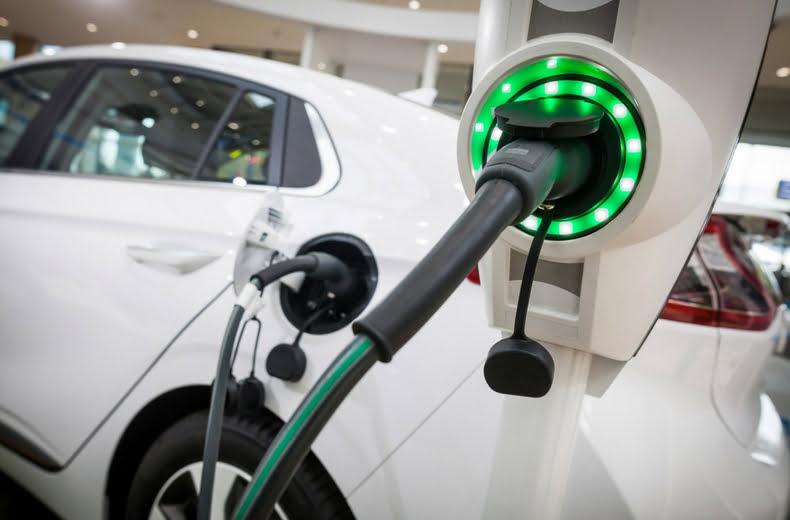Australian governments have a “significant opportunity” to drive the adoption of electric vehicles and move to end the sale of new petrol and diesel cars in the next 15 years, according to a new report by the Grattan Institute.
The report found that market forces alone cannot be relied upon to reduce emissions from Australia’s transport sector, and a range of government levers need to be pulled to assist Australia in reaching net-zero by 2050.
These policies should include an end date to the sales of new petrol and diesel vehicles by 2035, the scrapping of “inefficient” taxes and regulations around zero-emission vehicles, and vast improvements to charging infrastructure around the country, the Grattan Institute report said.

The NSW and Victorian state governments have set a target of having 50 per cent of all new car sales by electric vehicles (EVs) by 2030, while the federal Opposition took the same national target to the last election.
The public policy think tank also backed Victoria’s controversial road use tax for electric vehicle owners and said that if other support mechanisms are in place, other states should follow suit.
Australian governments need to act now to ensure there is enough uptake of electric vehicles in the coming decades to assist the country in achieving net zero by 2050, the report said.
“Relying on technology and market forces alone won’t be enough to get on track for net zero by 2050. Action today is crucial to avoid locking in emissions for decades to come, and to ensure the transport sector contributes to Australia reaching net zero by 2050,” the report said.
“There is a significant opportunity today for Australian governments to create momentum for faster emissions reduction in transport in the 2030s. Relying on market forces alone to decarbonise Australia’s light vehicle fleet is therefore a risky strategy that could well lead to millions more petrol and diesel models on the road in 2040.”
The flagship policy needed to do this from the federal government is a national mandatory fleet emissions standard, which would specify an average emissions intensity target for sales in a given year, with penalties imposed for manufacturers which don’t comply.
This would tighten each year and eventually reach zero by 2035, the Grattan Institute report said.
“It would encourage manufacturers to sell lower-emissions vehicles in the lowest-cost way across their sales base. Any additional cost to consumers of a lower-emissions vehicle woud be partly offset, or in many cases outweighed, by lower running costs form better fuel efficiency,” it said.
“A phase-out date would send the clearest possible signal to auto manufacturers that they need to give priority to supplying zero-emissions models suited to Australian conditions and consumer preferences. And giving motorists 14 years’ notice of the end date would give them ample time to adjust their purchasing decisions.”
Australians would still be able to purchase second-hand petrol and diesel cars after this proposed 2035 deadline.
The report found that the government’s current voluntary standard is “insufficient” as it is too lax, unenforceable and “easily gamed by vehicle manufacturers”.
State governments must also look to scrap “inefficient” taxes which are imposed on electric vehicle owners, including import duties, stamp duty and the luxury car tax.
“Governments should encourage a thriving market for zero-emissions vehicles by exempting them from inefficient taxes such as import duties, luxury car tax, and motor vehicle stamp duty,” the report said.
Significantly more effort needs to be applied to ensure better access to charging infrastructure for owners of EVs, the report found.
The government should require all buildings with off-street parking to include electrical cabling for charging stations, for all leased dwellings with off-street parking to have at least one electrical outlet near the car park by 2030 and ensure convenient, local vehicle charging is available by the same year for places with no off-street parking.
These policies would ensure that by 2035, around a quarter of Australian homes will have charging access.
The Grattan Institute also threw its support behind the Victorian government’s recently introduced road user tax for EVs, equating to 2.5c per kilometre. South Australia is considering a similar proposal while NSW will also be introducing such a tax, but has deferred it until 2027.
“Governments should not hesitate to introduce road-user charging for zero-emissions vehicles, as has been legislated in Victoria and is under consideration in South Australia and NSW,” the report said.
“Emissions are not the only costs that cars impose on society; a per-kilometre road user charge helps to ensure that drivers pay for their access to roads, which are an expensive public resource.
“If the complementary policies to boost zero-emissions vehicle uptake recommended in this report were adopted, there would be no reason to hold off on introducing a road-user charge for drivers of those vehicles.”
Electric vehicle policies are likely to again be a significant election issue next after, after the Coalition strongly criticised Labor’s proposed 50 per cent target during the last federal election.
Earlier this year Labor pledged a series of tax concessions for the purchasing of EVs worth less than $77,565, to cut the import tariff on vehicles and further fringe benefit tax exemptions.
At a state level, the NSW government recently unveiled a $480 million package including limited $3000 rebates and the removal of stamp duty on some new EVs, and the Victorian government launched its own $100 million plan, also including $3000 subsidies, $19 million for charging infrastructure and $10 million to increase the government fleet.
Do you know more? Contact James Riley via Email.

